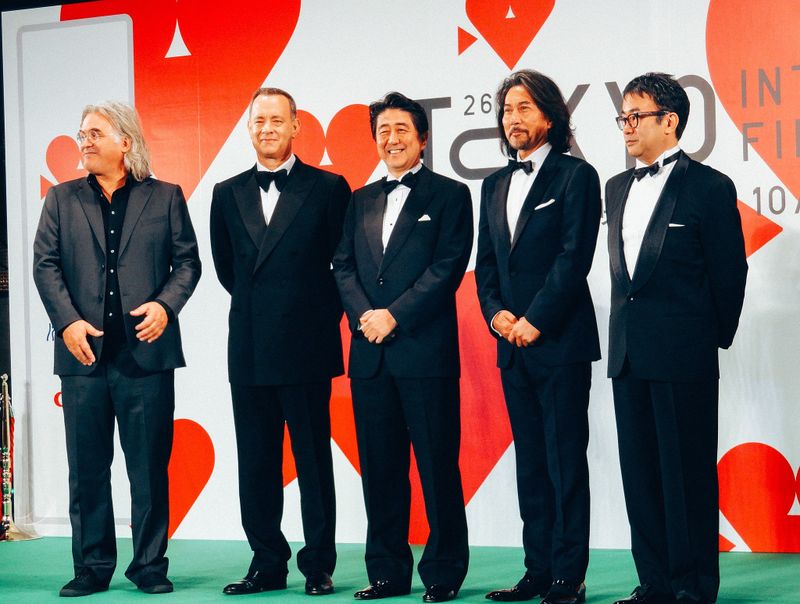Dec 30, 2018
Receiving blame just because you're a foreigner?
While living and/or working here in Japan, have you ever had something blamed on you simply because you were the foreigner?
I have.
In those cases, it was much easier for my Japanese counterpart organization to tell others that it was the foreigner who failed to submit the records on time, or that didn’t pick up the phone (even if the call never came through), or that didn’t respond to an email (even though the email was purposely sent right at close-of-business on a Friday).
Sure, those things are bad, but allow me to offer the pinnacle of foreigner-blaming that I witnessed in my time here:
To do that, let’s go back a few years to the October 2013 Tokyo International Film Festival…
The TIFF is an annual film festival held at cinemas throughout Tokyo, but the main events take place at Roppongi Hills. My wife and I managed to score tickets to the Opening Show for the 2013 TIFF: a screening of the Tom Hanks film, Captain Phillips.
For the screening, Tom Hanks and the director Paul Greengrass attended. Both gentlemen were scheduled to walk the red carpet and take the stage at the theater for some remarks about the film. The thing is, everything started late--about 25 minutes late--which is unusual by Japanese standards. We wondered what was up.
Then Tom Hanks and Paul Greengrass arrived, with Prime Minister Shinzo Abe following shortly thereafter, and the program started.

When it came time for Hanks and Greengrass to take the stage, the festival MC introduced them, speaking English (with follow-on translation).
She explained, “We are so happy that Mr. Hanks and Mr. Greengrass were able to make it tonight, although they were a little bit late because of weather flying here from Taiwan. Thank you for coming!”
Here was Tom Hanks’s response: “Yes, thank you for having us. I’m happy to be back in Tokyo, but as for starting late, there was actually a certain Prime Minister who was running behind…”
So there it was: the Prime Minister was late, but instead of merely saying, “Sorry we are starting late, ladies and gentlemen--there were state affairs that required attending,” the festival staff were more comfortable blaming the GUESTS OF HONOR right before they came onto stage.
How can anyone think that’s a good idea?
The fact is, it’s the easy way out for a lot of Japanese. I won’t get into the cultural concepts of uchi and soto (inside and outside), but the bottom lines is that those folks don’t expect foreigners to push back, and even if they did, to whom would they complain? In the case of Tom Hanks and the TIFF, the festival organizers were more comfortable bagging out Hanks and Greengrass because they neither wanted to allow the festival to appear disorganized, nor did they want to embarrass the Prime Minister when the government patronizes the event. Meanwhile, they might never have to deal with Tom Hanks ever again. In that case, blame Tom Hanks, right?
Don’t get me wrong, there’s always a solution to these situations. In Tom Hanks’s case, he simply corrected it on the spot. After all, to whom is the film festival staff going to complain about him, one of the world’s most popular people?
But what if you’re many million dollars poorer and not nearly as recognizable as Tom Hanks? What should you do if you are unduly blamed for something simply because you are the “outsider?”
Usually the best way to take care of it is to stop dealing with the person blaming you for things--just jump the ladder a few rungs to someone who is higher in the organization, especially if you already have a personal connection with that person. That higher ranking individual won’t ever give you a “sorry” or a direct recognition that you’ve been wronged; rather, you’ll typically receive messages like, “I’ll look into it, but I’m sure it won’t be a problem anymore,” or “Let me talk to ___-san to clear up the confusion.” Don’t expect much follow-up, either. The problem will be dealt with in a manner that makes it appear there was never a problem in the first place.
Dissatisfying? Maybe. But it will make life easier for you in the long run even if the near-term solution is less than ideal.
That said, here are a few ground rules for this “blaming” situations:
First: never to put up with it. You are the foreigner, which means you don’t need to take these lumps without a fight.
Second: address it early. Set the standard so that you don’t continue to get walked over.
Third: act with grace and composure. Losing your cool won’t get you anywhere. Be firm, but be in control. Take strong action, but make sure it’s calculated.
Do you have a situation in which you were unduly blamed for something just because you were the foreigner? How did you handle it? Feel free to use the comments section below!
*Author’s note: the Photo in the article is from wikimedia commons--the pics taken on my cell phone camera back in 2013 don’t exactly do the story justice!
Hitting the books once again as a Ph.D. student in Niigata Prefecture. Although I've lived in Japan many years, life as a student in this country is a first.
Blessed Dad. Lucky Husband. Happy Gaijin (most of the time).



0 Comments